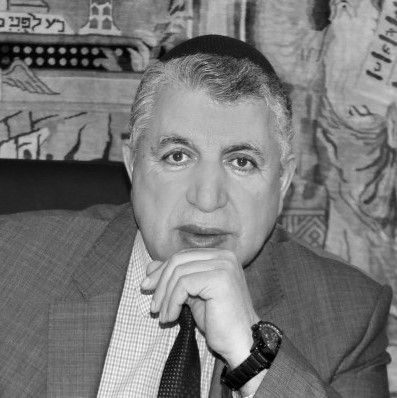
Last week I saw the pictures from Germany, of the “Kippah March”, and my eyes swelled with tears. It is simply not every day that a Jew of my age can look at solidarity against anti-Semitism playing out so warmly, publically, and bravely, as it did in multiple cities throughout Germany. One picture that stood out to me, is of a Muslim woman in a hijab, with a kippah on top, and a warm smile on her face. This photo touched on something very deep in my life. I live in a country where Jews and Muslims have an ideal relationship – based on mutual values, pride, friendship and a sense of sharing something, including a homeland. I know it is a rare thing what we have, but I believe what I saw on the smiling faces of demonstrators in Germany to be made of the same thing. Building peace through embracing our different cultures, and standing together against the forces that wish to destroy that peace.
This problem of reemerging anti-Semitism is continuously getting worse and showing its face in countries across the world. A recent study conducted by the Anti-Defamation League found that in the United States alone, there was a 60% increase in incidents of anti-Semitism in 2017, a record-breaking spike from only one year before. There has been a significant rise in anti-Semitism and attacks against Jews in Germany, as we know also in France, and even last week several attacks were committed against Jews in New York City. The statement behind the Kippah demonstrations in Germany was simple: Jews should not be afraid to live wherever they live, and the rest of the community stands together on this. It is a powerful gesture, but it is also simply a gesture, and the German nation will have to work hard to overturn the growing problem, just as nations to the West have their work cut out for them.
I hope what has worked for so long in Azerbaijan can be helpful to the rest of the world, in terms of understanding what it takes to achieve interfaith and multicultural harmony, even in the wake of catastrophe, and even when surrounded by nations with opposite goals. One definite factor that works and can be repeated is commitment. Azerbaijan does not take social harmony for granted. It is ingrained in our national identity – our music, art, educational programs, our laws and our leaders, and it is reinforced at every level of our society. It is why Azerbaijan is a majority-Muslim nation with a Jewish parliamentarian who represents both Muslims and Jews; it is why we have public schools that offer free glatt kosher meals to our students; and beautiful synagogues either built or rebuilt at the instruction of the country’s President Ilham Aliyev. It is neither a surprise that the same President Aliyev was recently re-elected in a landslide victory, nor surprising that every single Jewish citizen voted for him. The values that protect and empower Jews in Azerbaijan are fiercely fought for by President Aliyev on a daily basis.
Those values have protected a 2,000-year old Jewish presence in Azerbaijan, shielded us against invasions, and empowered our community with resources, land, equal rights and inclusion. During the Holocaust, Azerbaijan served as a safe haven for Jewish refugees, and fought tirelessly against the Nazis. Today, we have a strong Jewish community of 30,000, comprised of Mountain (Mizrahi), Ashkenazi and Georgian Jews, living in our capital Baku, the all-Jewish Red Village, and in cities across the country.
I can’t help but think of all this when I look again at the picture from the recent Kippah march in Germany, because these are gifts I do not take for granted. I see the Kippah march as a spark of the same light that has kept us going so long in peace here in Azerbaijan, and I hope to see more of this kind of demonstration across the world. At the end of the day, peace is all about acceptance and solidarity, and so such acts of solidarity, as we see in these Marches, are something to cherish, and to continue doing, because they inspire the values that are critical to the fight against hate and evil.





















 More news and opinions than at a Shabbat dinner, right in your inbox.
More news and opinions than at a Shabbat dinner, right in your inbox.